Thinking of adding a rabbit (or two!) to your family? Rabbits are the third most popular furry pet after cats and dogs — and for good reason! However, with their unique needs and behaviours, they’re definitely not the same as our canine or feline companions. Here are 12 things to know before you bring a bunny home.
1. Rabbits live a long time
Compared to other small animals like rats or hamsters, rabbits have a long lifespan. Depending on the breed, your bunny could live up to 15 years!
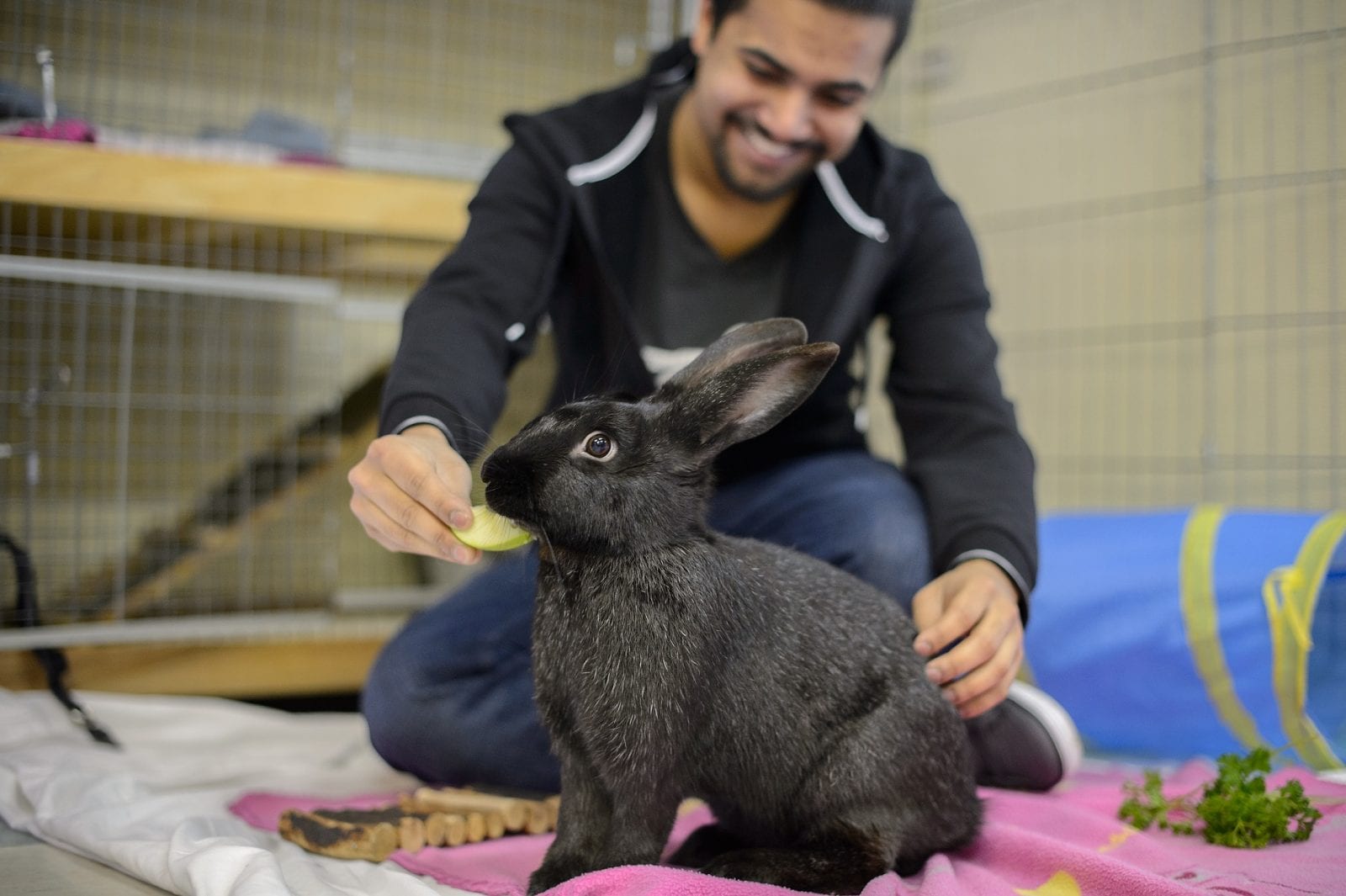
2. Rabbits love the indoor life
Gone are the days of keeping rabbits alone in a hutch in the backyard! Bunnies do best when they’re kept indoors in an area of the home where people hang out — ideally in a large, enriched enclosure or with free run of an entire room. That way, they can become part of the family where they belong.
Your rabbit’s habitat should be big enough to fit food and water bowls, at least one litter box and at least one hideout, while still allowing them to take several unobstructed hops in a row. The more space you can provide, the better!
Pet store cages are too small to properly house a rabbit. Instead, you can easily make a large habitat using dog exercise pens or wire storage cubes. Large enclosures keep rabbits happier and healthier. They give you a lot more room to decorate by adding toys and places to perch and hide. They also make your job easier because they don’t get dirty as quickly.
Habitat bottoms should be solid, not mesh or wire, which can hurt rabbit feet. For bedding, use wood shavings such as aspen (not pine or cedar), recycled paper bedding or a thick, clean blanket.
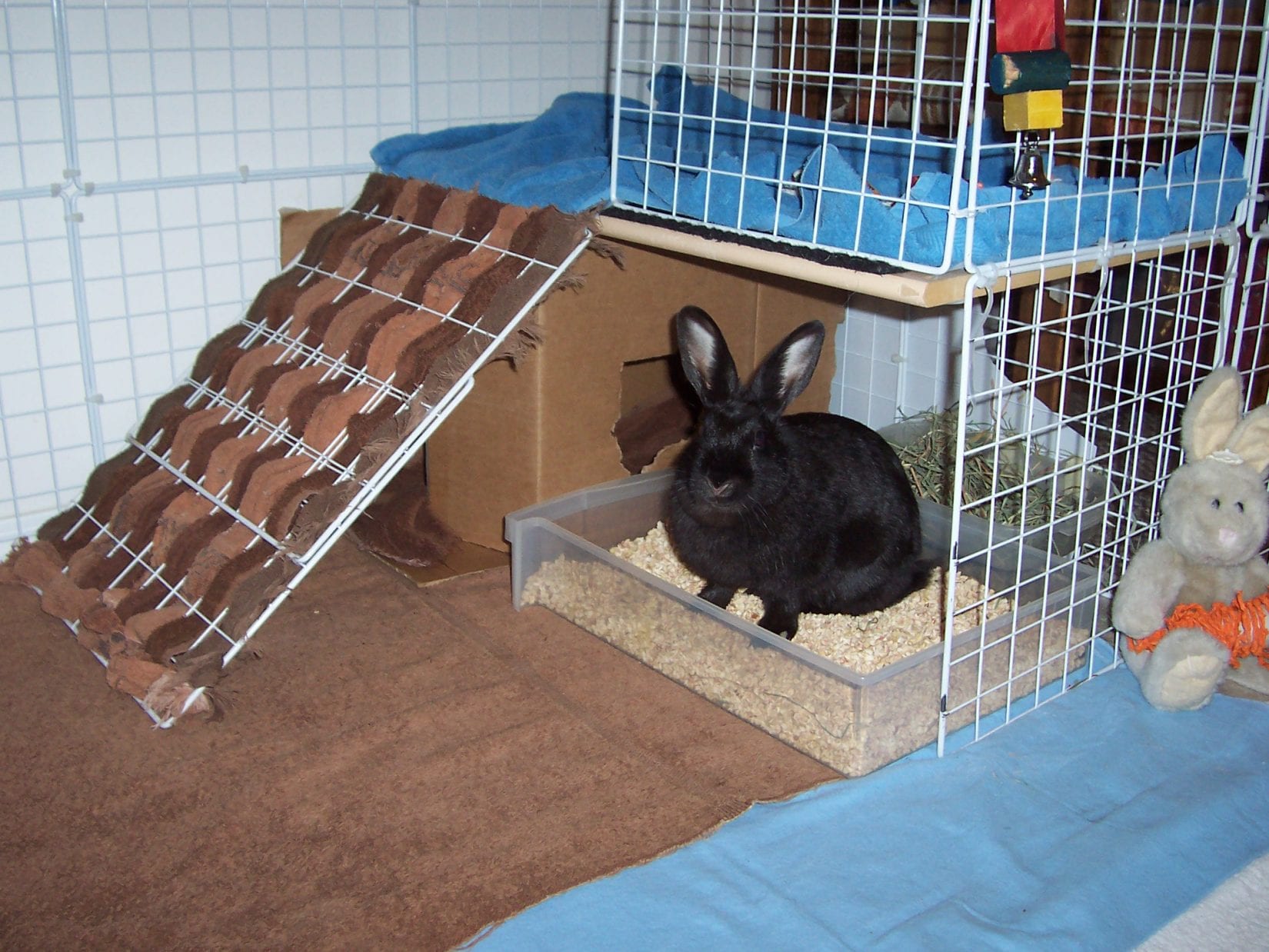
3. Pet rabbits behave a lot like wild rabbits
Rabbits are a prey species. In the wild, they either freeze on the spot or run for cover when they’re frightened. As pets, they do the same. To feel secure, your rabbit needs a shelter they can retreat to, whether they’re in their enclosure or out free in a room.
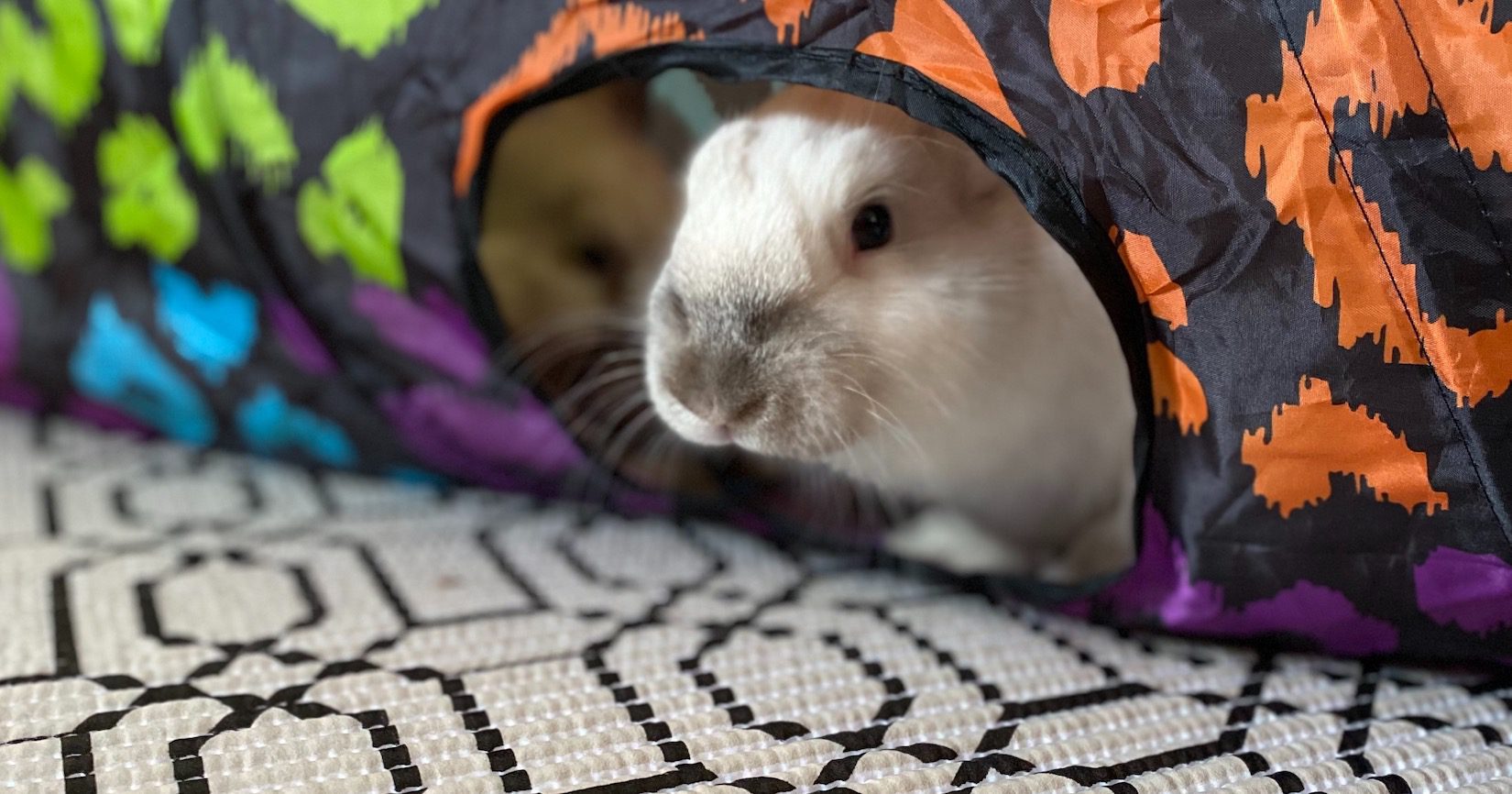
4. Rabbits are busy bodies
Rabbits are active, playful animals who need a lot of space. Your rabbit should spend at least four hours each day outside of their enclosure. You can let them explore freely in a room or use dog exercise pens to fence off a safe area for them to hop around. Just be sure to “bunny-proof” your home by moving household plants out of reach and blocking off access to electrical cords and other unsafe items.
5. Rabbits have busy minds too
Rabbits are smart, so it’s important to keep your rabbit entertained. For those hours you’re at work or school, you can keep them busy with safe chew toys, hay towers and healthy treats hidden in cardboard mazes, food balls or other puzzle feeders. Make sure they also have lots of hay in their litter box.
Not only is it good to encourage natural foraging behaviour in rabbits, but frequent chewing also helps them to wear down their constantly growing teeth.
6. Rabbits need some-bunny to love
Rabbits love company. In the wild, they live in large groups. Consider adopting more than one rabbit so they can keep each other company when you’re not home. For all those hours you’re at work or school, think how happy your rabbit will be having a rabbit friend around! They’ll eat, play and sleep together, and groom each other.
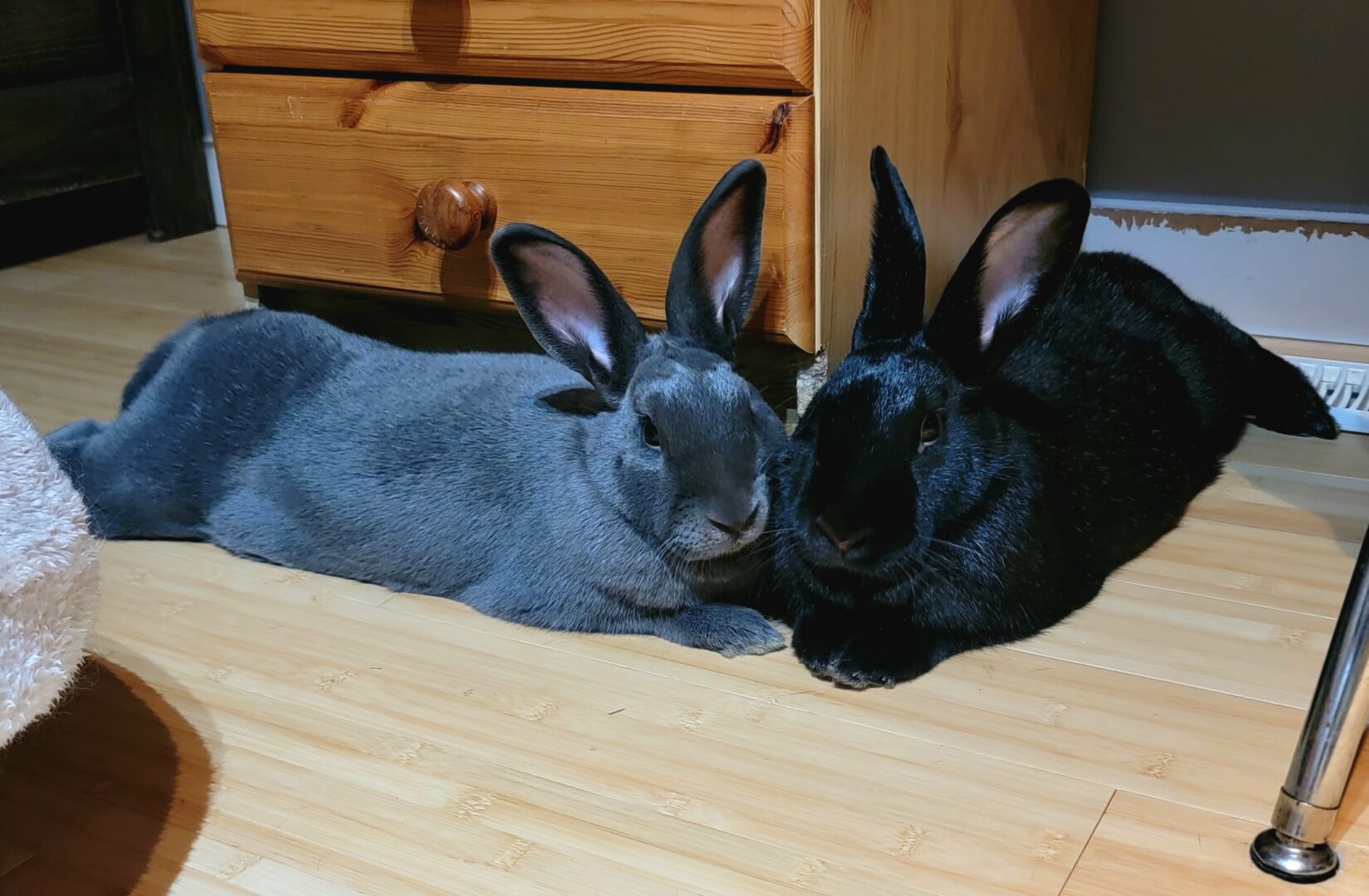
7. Even rabbits need “hare” salons
Rabbits are great groomers, so they don’t ever need baths from humans. But they do need brushing — especially long-haired rabbits — to prevent matting and to keep them from swallowing too much loose fur as they groom themselves. Unlike cats, they can’t cough up hairballs!
Rabbits also need their nails trimmed every four to six weeks. Be careful, though: cutting nails too short can be painful and cause them to bleed. It’s always a good idea to have a second person around to help you: one person to hold your rabbit and the other to trim their nails.
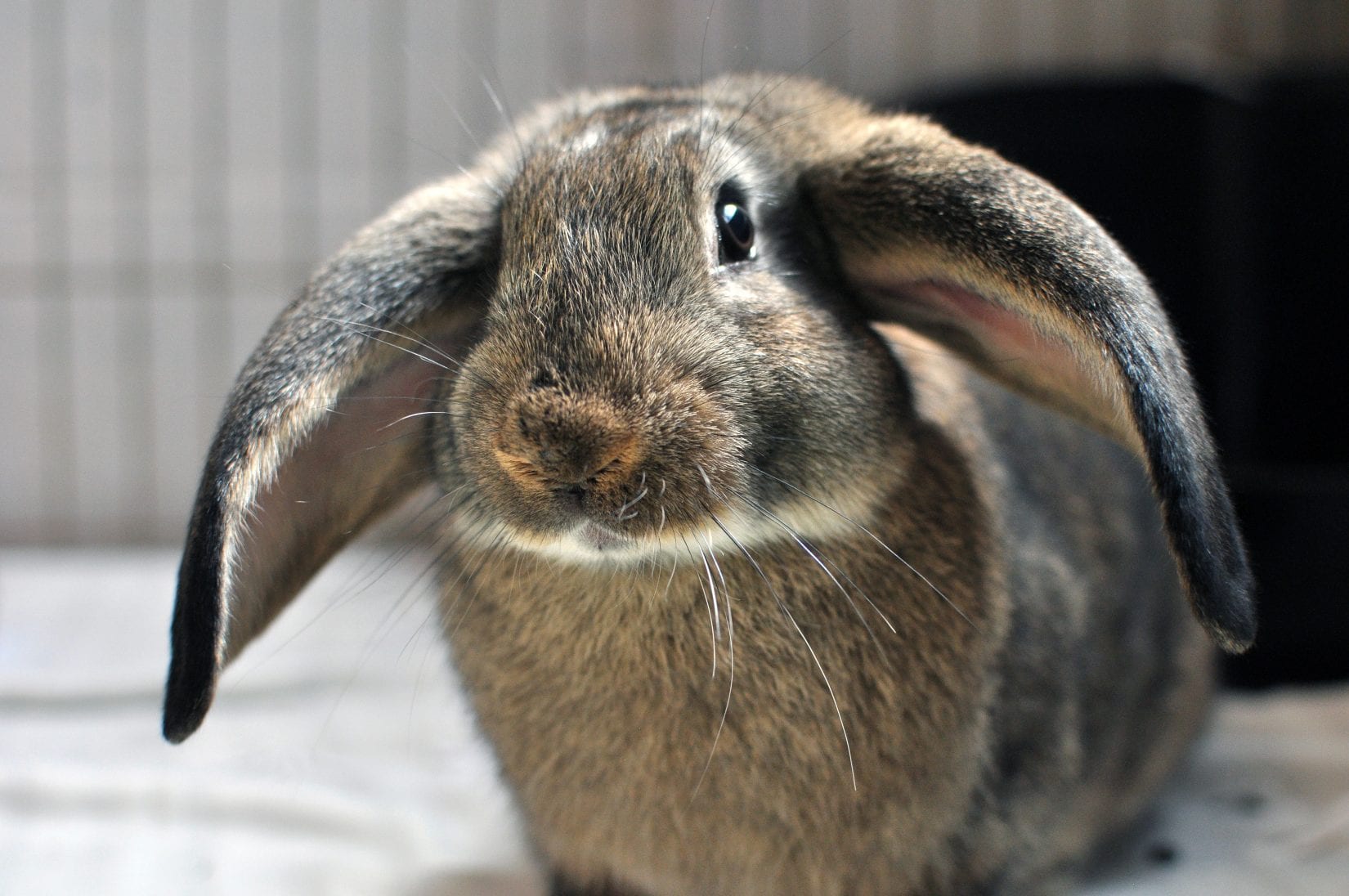
8. Rabbits can’t live on carrots
Rabbits are herbivores, meaning they only eat plants. Grass hay should be the staple of your rabbit’s diet. Feed them a variety of grass hays such as Timothy hay and orchard grass — as much as they want. Hay helps with digestion and keeping their teeth properly worn down. Avoid alfalfa, as it’s too rich for most rabbits.
Feed your rabbit plenty of fresh vegetables every day, especially leafy greens like bok choy, parsley, romaine lettuce, green and red leaf lettuce (but not iceberg), cilantro, celery leaves and carrot tops. Only feed fruits and carrots as a treat and in very small amounts. Introduce new foods gradually to avoid upsetting their digestive system.
Your rabbit can also have good quality, high fibre rabbit pellets. These should only be given in small amounts. Too many pellets and rabbits can become overweight and prone to other health problems. Also, the more pellets they eat, the less hay they tend to eat.
Rabbits have sensitive digestive systems, so keep it simple: low in sugar and high in fibre! See the BC SPCA Rabbit Food Guide (PDF) for more details on feeding your rabbit.
9. Rabbits can be housetrained
Rabbits can be trained to use a litter box so they won’t make a mess in the house. Clean the litter box every 1-2 days and the entire cage once a week.
A large plastic cat litter pan works well, as long as your rabbit can fit completely inside. Fill the bottom with a few inches of rabbit-safe litter such as paper- or wood-based pellets, and make sure there is a ton of Timothy hay to munch on while in their litter box.
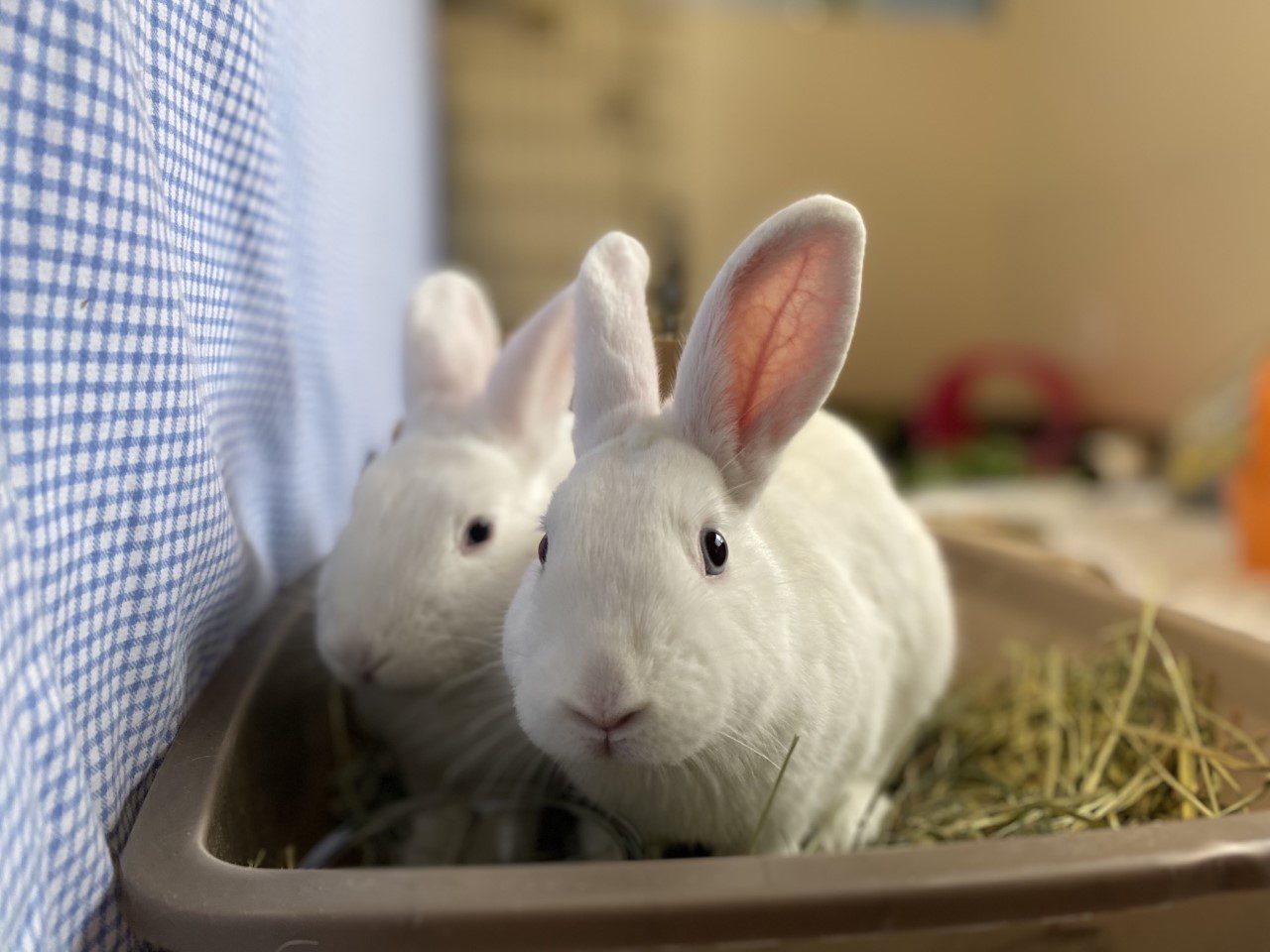
10. Vet care is for rabbits too
Spending time with your rabbit will naturally give you a good sense of how they normally act and behave. When you notice something unusual, like diarrhea, sitting in a hunched position or loss of appetite, take them to the veterinarian right away. As a prey species, rabbits tend to hide their symptoms, so it’s important to take even small changes seriously! It’s also important to take them to a vet who’s familiar with rabbits.
Rabbits also need a special vaccine (PDF) to protect them from a fatal disease now present in BC.
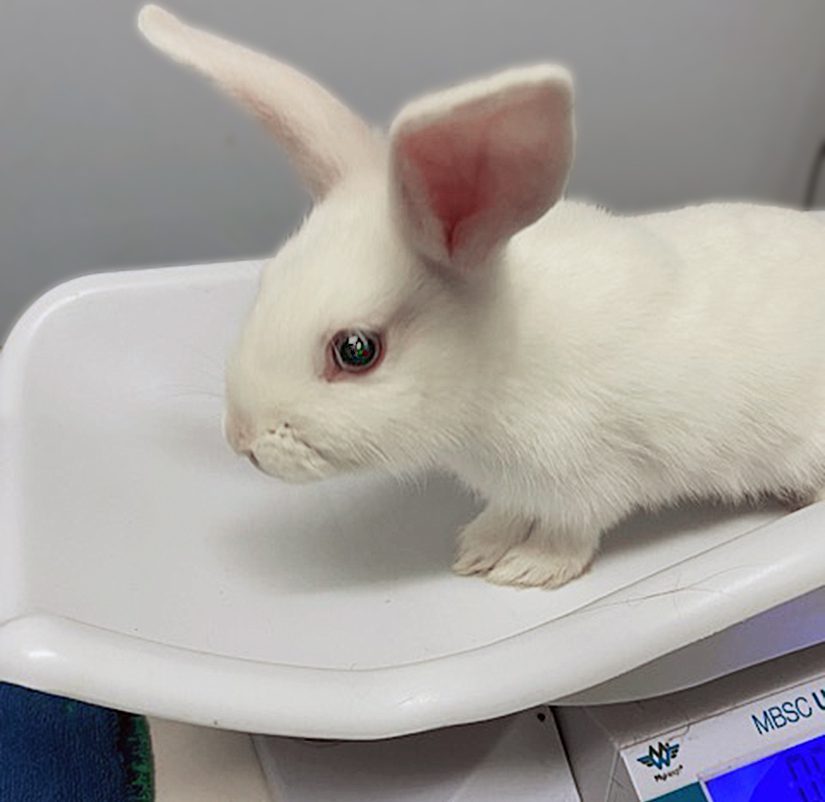
11. Rabbits prefer to stay on the ground
Despite a reputation for being cuddly, most rabbits don’t like to be picked up and held. If you try lifting a rabbit off the ground, they’ll often get scared and struggle to get away from you, kicking with their strong back legs. Not only can you be scratched in the process, the rabbit could also be seriously injured in their attempt to escape.
Instead of carrying your rabbit around, try sitting or lying on the floor and letting them approach and sniff you on their own terms. Some rabbits are shy and will take more time to relax and feel comfortable in your home. Once they’re comfortable, you can gently pet them. They might even lick or ‘chin’ you, which is their way of scent-marking you as their own.
If it’s necessary to pick up your rabbit, always use two hands: one under their hind end and the other around their chest. Hold them close to your chest so they feel more secure.
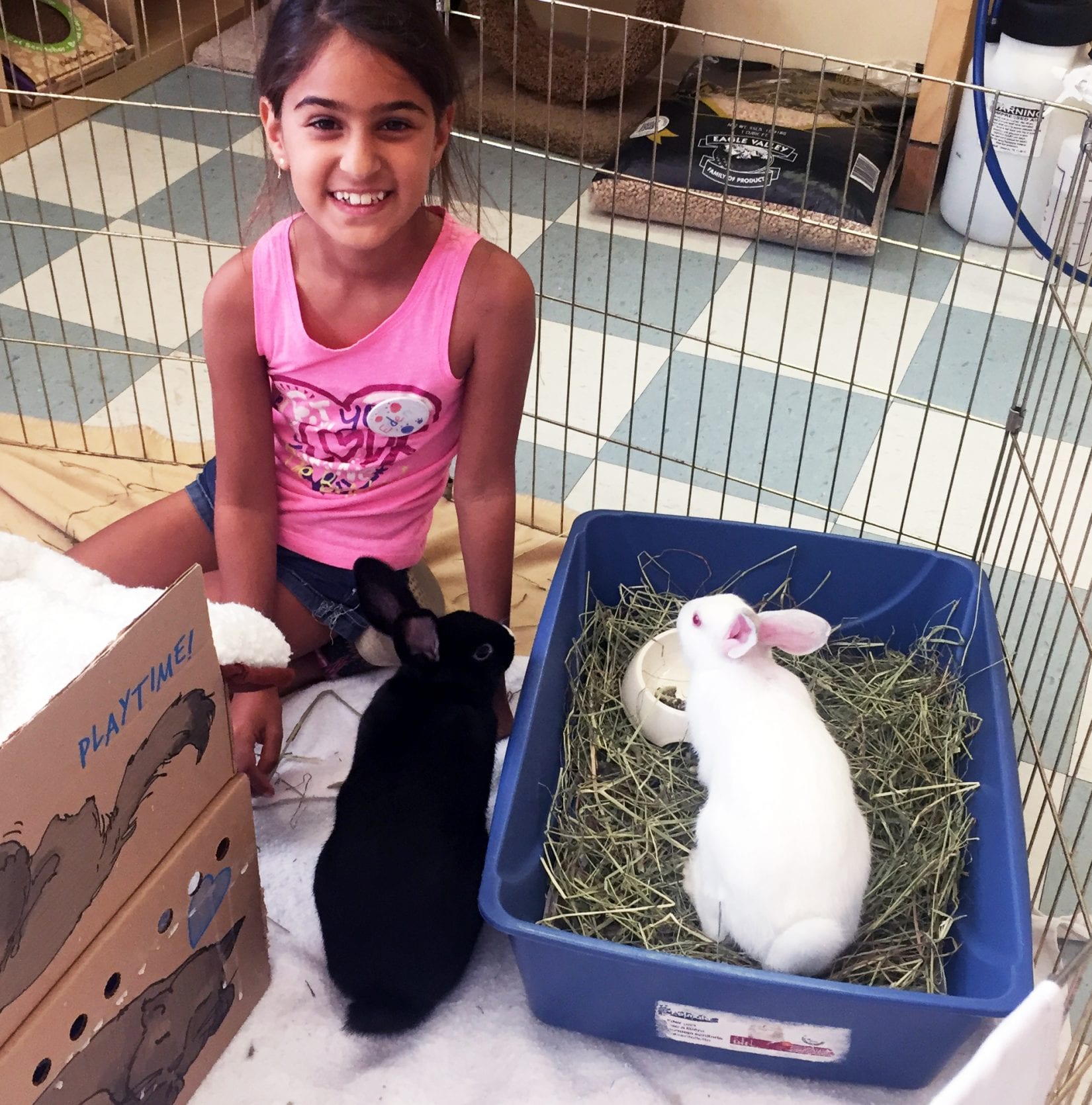
12. Rabbits can multiply!
At the end of just one year, a single unspayed rabbit could be responsible for as many as 450 baby bunnies. To help prevent pet overpopulation, all BC SPCA rabbits are spayed or neutered prior to adoption. Yours should be too! Spaying and neutering can make litter box training easier and keep your companion healthier.
